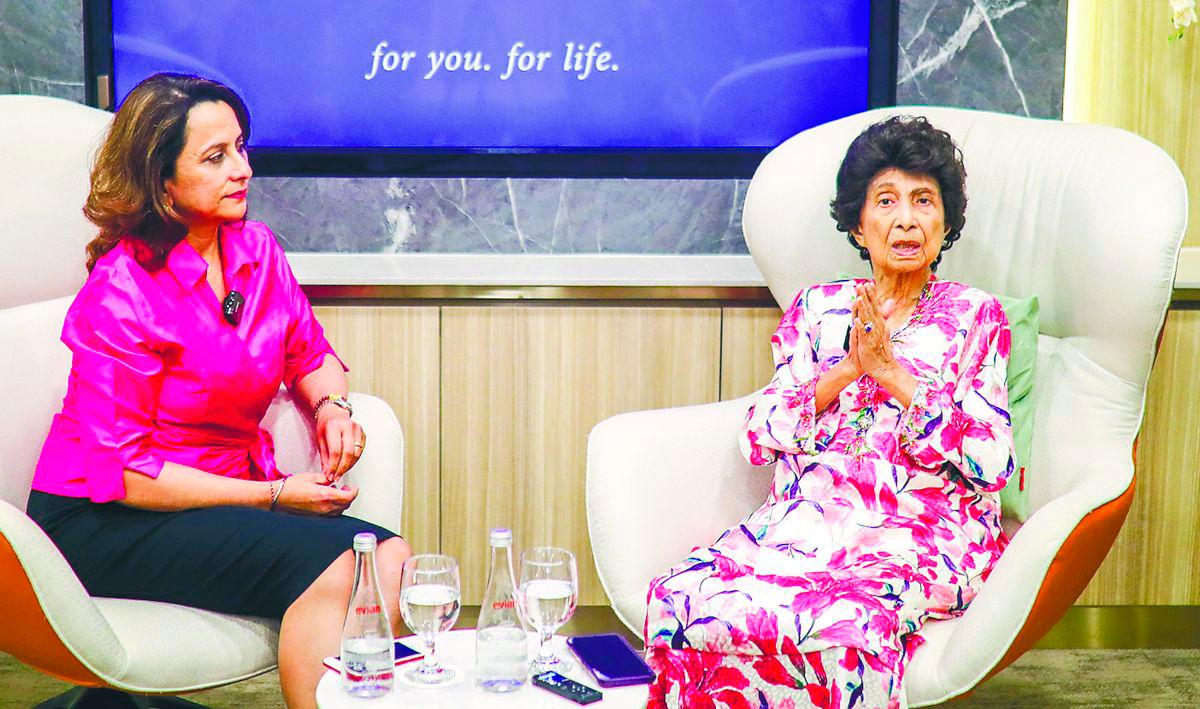KUALA LUMPUR: Tun Dr Siti Hasmah Mohd Ali, 98, wife of former prime minister Tun Dr Mahathir Mohamad, picked up the violin again after a 70-year hiatus, at the age of 86.
Hasmah said she had put it aside for seven decades after marriage, having last played the violin at the age of 16.
She said she found fresh inspiration when she was appointed patron of the Malaysian Philharmonic Orchestra and was invited to take part in a fundraising concert.
“At first, I said I’d sing – your voice is an instrument too!” she laughed.
“But they told me to do something different. I was 86 then. I said, ‘I can’t tap dance, I’m too old!’ Then they brought up the violin. I said, ‘No way. I haven’t played in 70 years!’ But they insisted. So I found a teacher,” Hasmah recounted during a forum titled “A Cancer Survivor’s Journey”.
Although she can no longer read music due to poor vision, she now plays by ear and practises almost every day.
“It doesn’t matter what song – Malay, Chinese, Japanese, English – just something to keep my mind happy.
“I picked up the violin again not to be perfect, but to find joy. I just want to be happy.”
Her story of resilience and lifelong learning is a poignant reminder that ageing gracefully is not about how long we live, but how fully.
Speaking candidly about her private battle with breast cancer, Hasmah shed light on the emotional and cultural barriers that prevent many Malaysian women, especially older ones, from seeking timely medical care.
She recalled how persistent pain in her breast during an official trip to the Philippines in 2019 led to a life-saving diagnosis.
She said despite being a doctor, it wasn’t medical training that prompted her to get tested, it was gut instinct.
“People assume I went for check-ups because I’m a doctor. But that’s not true. It was a feeling deep inside, I knew something wasn’t right.”
She said many women in her age group avoid seeking help out of fear or shame, often delaying critical diagnoses.
“But these feelings shouldn’t hold us back. Your life is more important.”
She also revealed that she kept her symptoms from her husband until she was certain of the diagnosis.
“I didn’t want to trouble him until I knew for sure. It was painful, physically and emotionally. But I’m glad I acted quickly.”
Her attending doctor, Prince Court Medical Centre senior consultant and breast and endocrine surgeon Dr Harjit Kaur Perdamen shared a striking coincidence – Hasmah had officiated the hospital’s intraoperative radiation therapy (IORT) machine just months before becoming a patient herself.
“The irony was striking,” said Harjit.
She said Hasmah had demonstrated how the IORT machine worked.
“Later, her tumour matched the ideal criteria – small, hormone-positive and no lymph node involvement. She was a perfect candidate.”
Hasmah underwent surgery under a pseudonym to avoid publicity and was discharged the next day. She completed five years of hormone therapy and is now cancer-free.
She urged women to take charge of their health and not ignore warning signs.
“Don’t wait for pain. Don’t let fear or shame silence you.
“Go for your checks. Catch it early. Don’t play with your life.”









